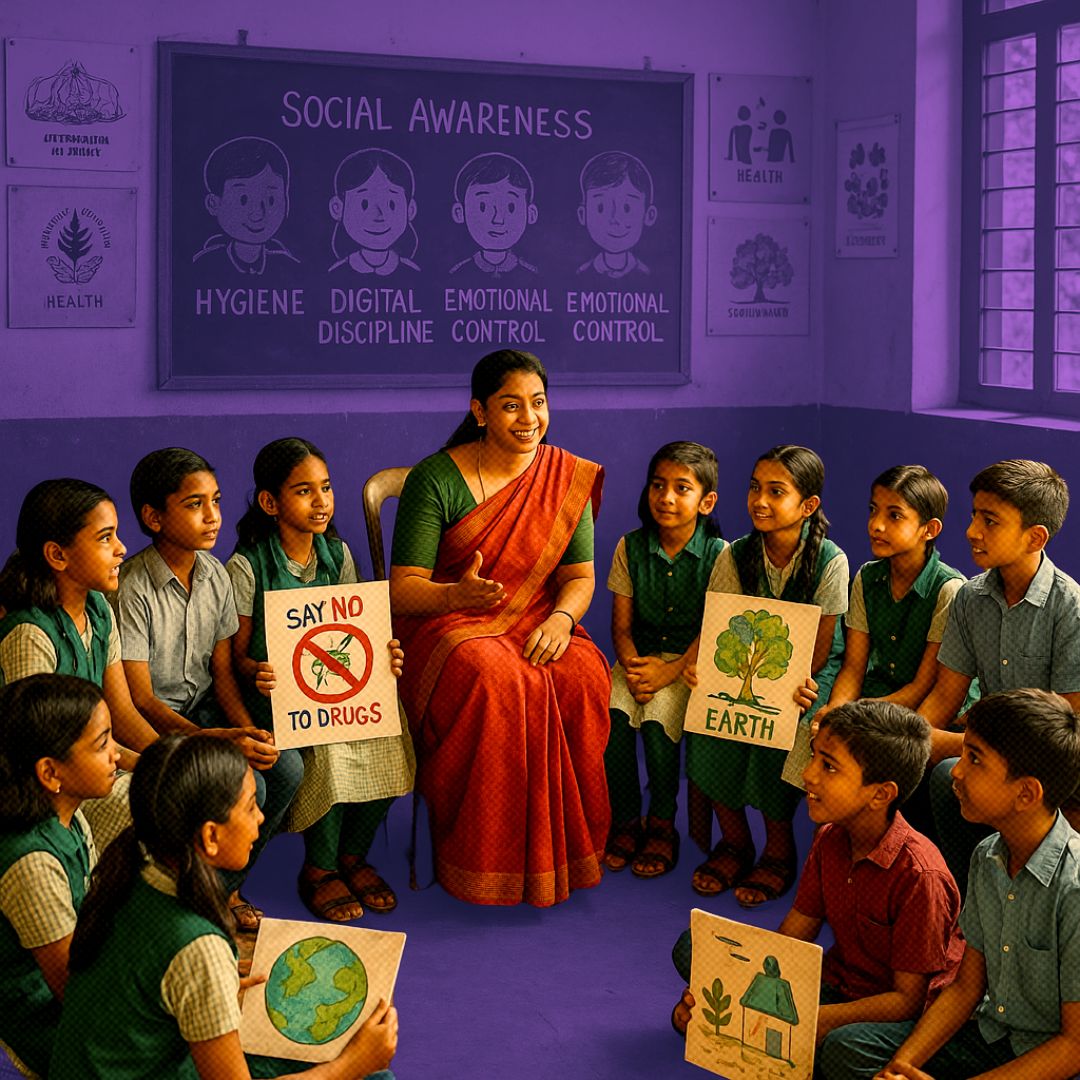Kerala has announced a groundbreaking educational reform for the 2025-2026 academic year, dedicating the first two weeks-from June 2 onwards-exclusively to social awareness classes for students in Classes 1 to 10, replacing the regular textbook curriculum.
Higher secondary students will engage in a similar programme for one week starting July 18. This initiative, the first of its kind in India, aims to sensitise young learners about pressing social issues such as drug abuse, emotional control, hygiene, digital discipline, and law awareness.
Spearheaded by the Department of Public Education and endorsed by Education Minister V Sivankutty, the programme has been crafted with inputs from multiple government departments and experts, marking a significant shift towards holistic education in Kerala.
Kerala’s Social Awareness Drive: A New Educational Paradigm
In an unprecedented move, Kerala’s Department of Public Education has decided to replace traditional textbook lessons with social awareness sessions for the initial two weeks of the academic year. Education Minister V Sivankutty elaborated, “For two weeks, children are not going to study textbooks but will engage in awareness sessions and discussions on various social topics.”
The curriculum covers vital themes such as drug abuse prevention, destruction of public property, emotional regulation, environmental and personal hygiene, healthcare, and understanding laws.
This comprehensive programme was developed after a two-day workshop involving experts from the police, excise department, Child Rights Commission, Social Justice Department, National Health Mission, Women and Child Development, and the State Council of Educational Research and Training (SCERT). Schools have also been advised to adjust timetables to incorporate arts, sports, and social education, fostering a well-rounded learning environment.
Addressing Contemporary Social Challenges through Education
This initiative emerges against a backdrop of rising concerns about the social and emotional wellbeing of students in Kerala. Reports of increasing substance abuse, behavioural issues, and mental health challenges among young people have prompted the government to rethink the role of education beyond academics.
Kerala has previously introduced age-appropriate sexual awareness and waste management lessons, responding to judicial directives and public health campaigns. Minister Sivankutty highlighted the importance of schools being “places of happiness, not anxiety,” underscoring the government’s commitment to nurturing students’ emotional resilience alongside intellectual growth.
The collaborative approach involving multiple departments ensures that the programme is comprehensive, practical, and sensitive to the realities students face today.
The Logical Indian’s Perspective
Kerala’s decision to prioritise social awareness education signals a visionary approach that aligns with The Logical Indian’s values of empathy, dialogue, and social harmony. Education should empower young minds not only with knowledge but also with compassion and critical thinking, enabling them to become responsible citizens who contribute positively to society.
By dedicating time to discuss real-life challenges and encouraging open conversations, Kerala is setting a powerful example for the rest of the country. This initiative reminds us that academic success and social consciousness must go hand in hand to build a peaceful and inclusive future. We invite our readers to reflect: How can educational systems across India and beyond balance academic rigor with social and emotional learning to prepare students for the complexities of modern life?











